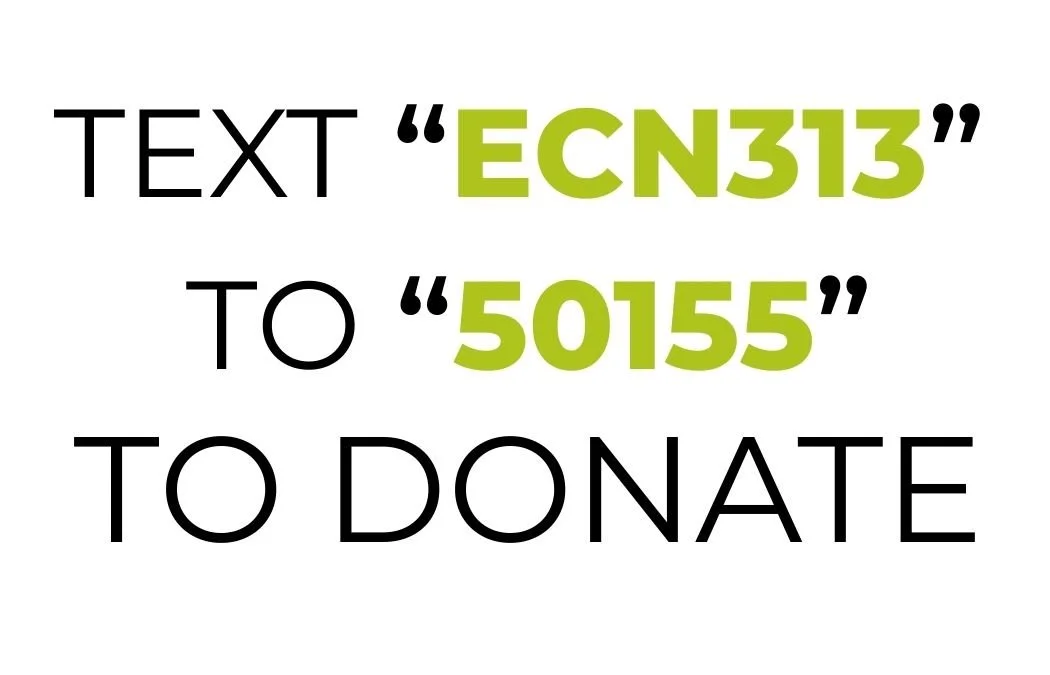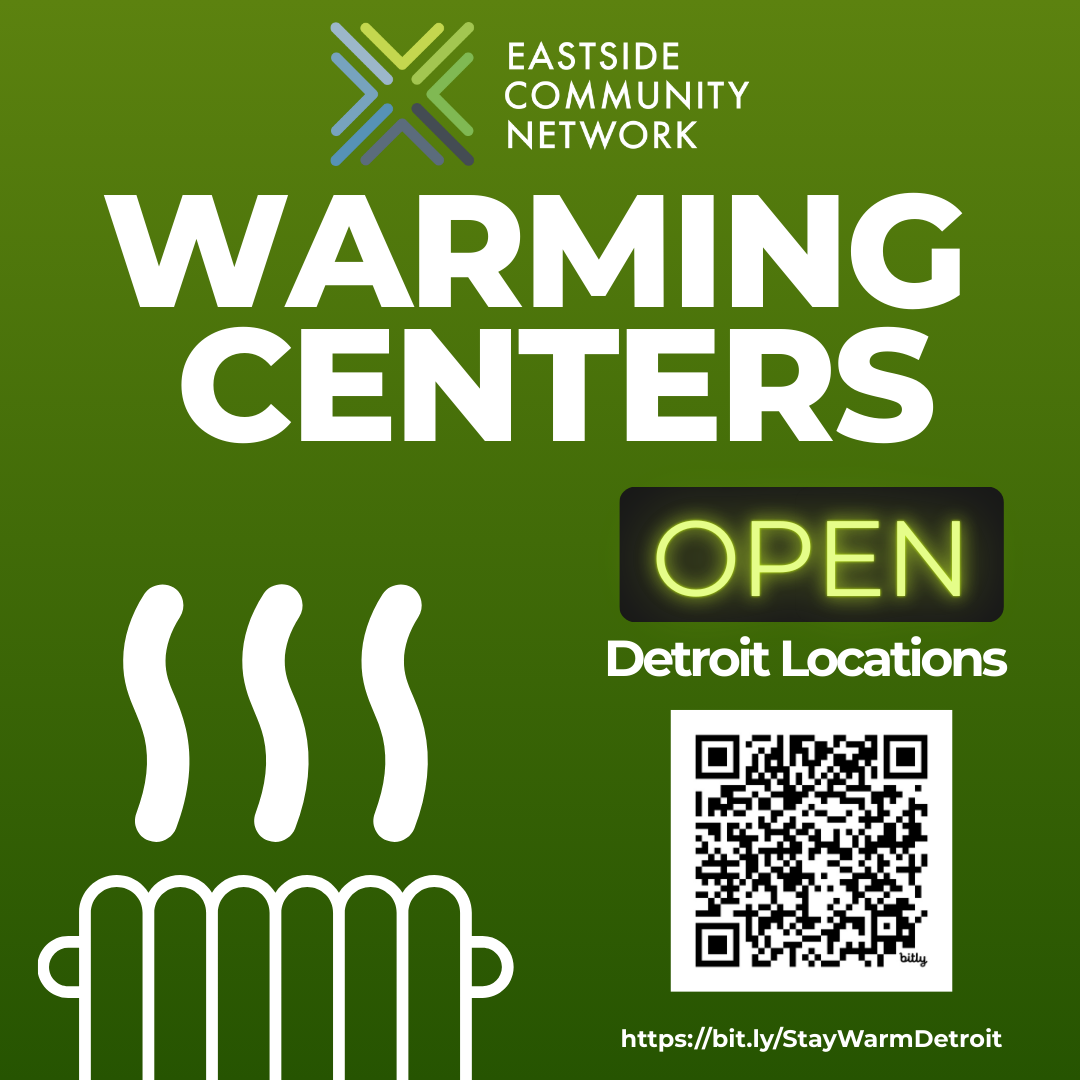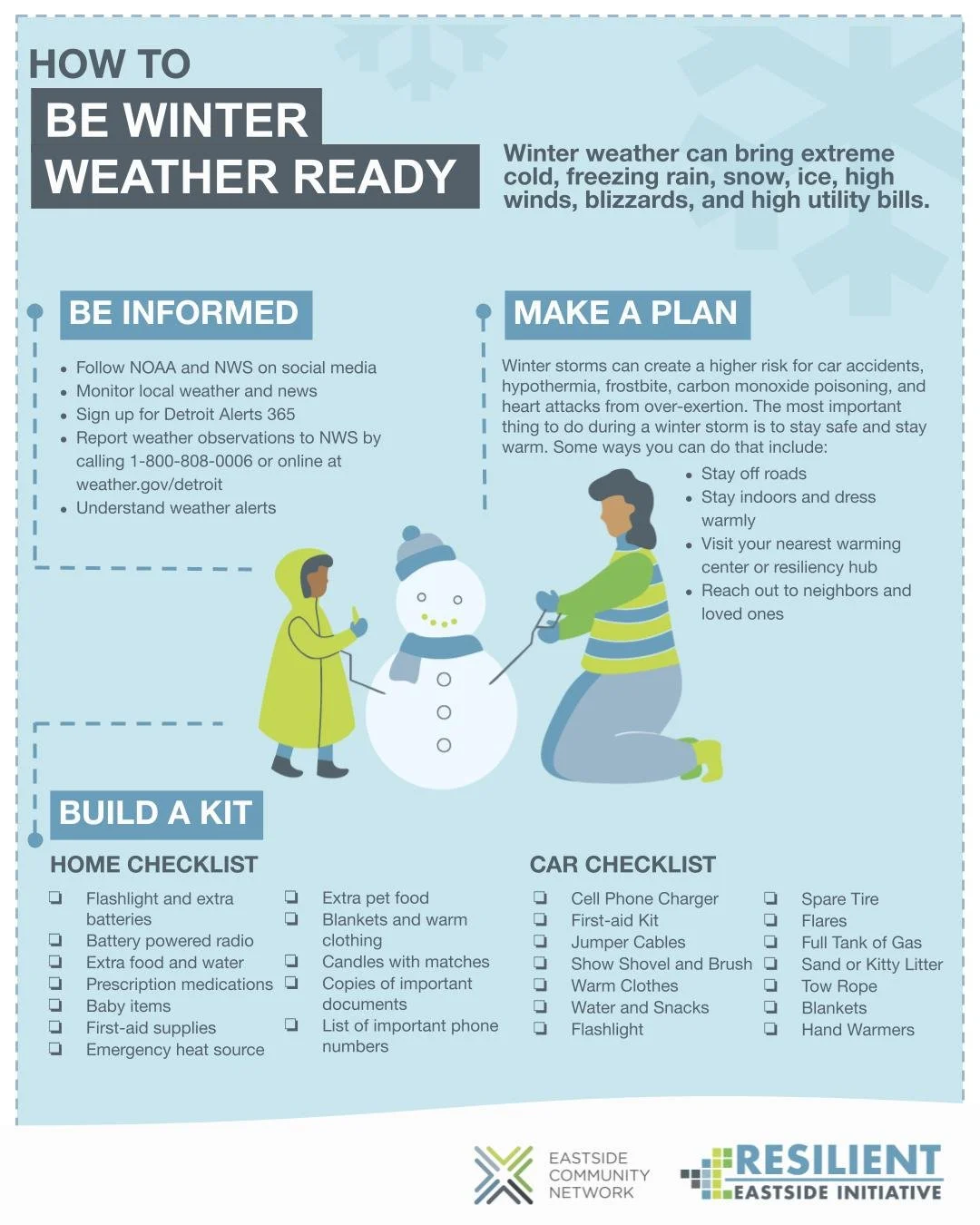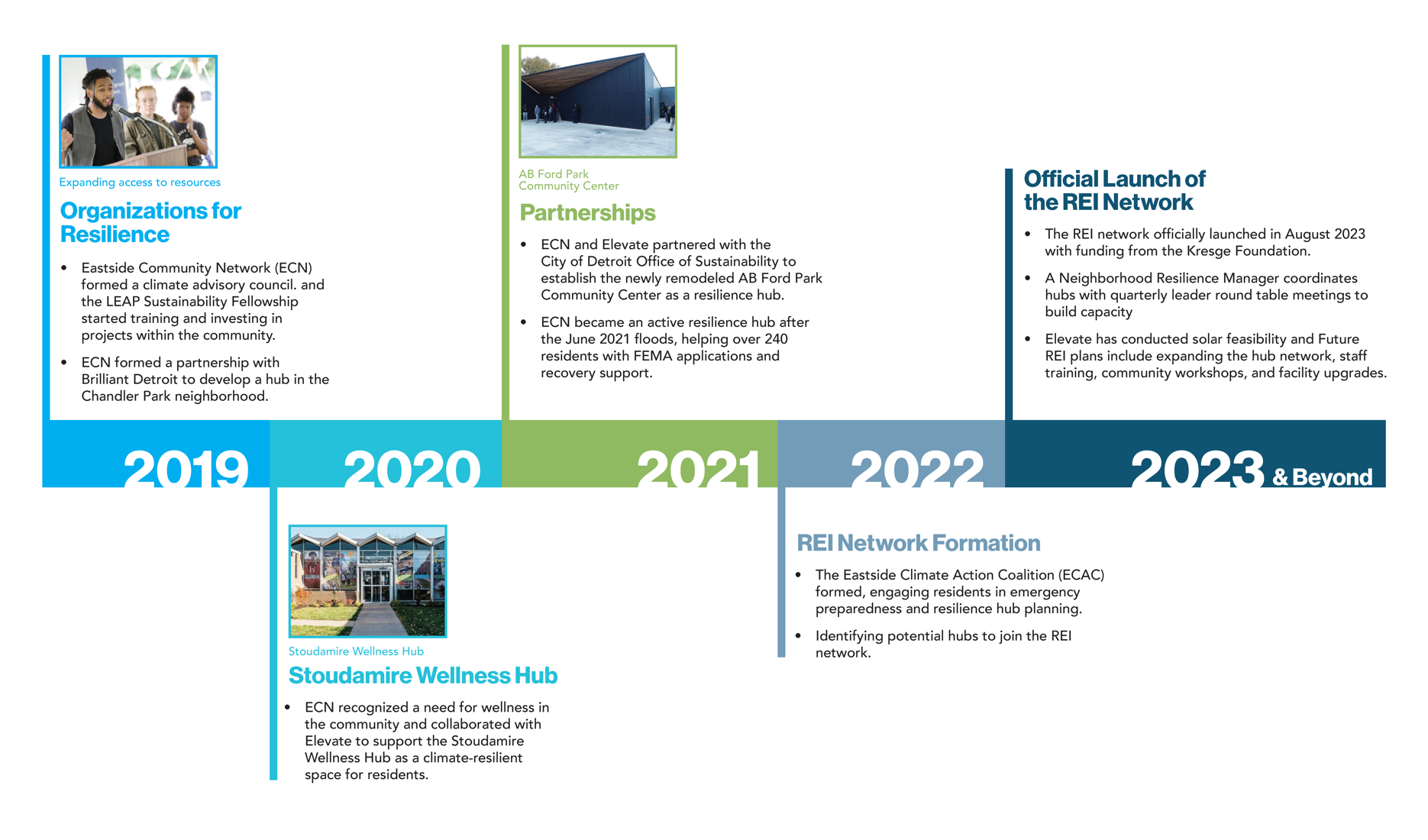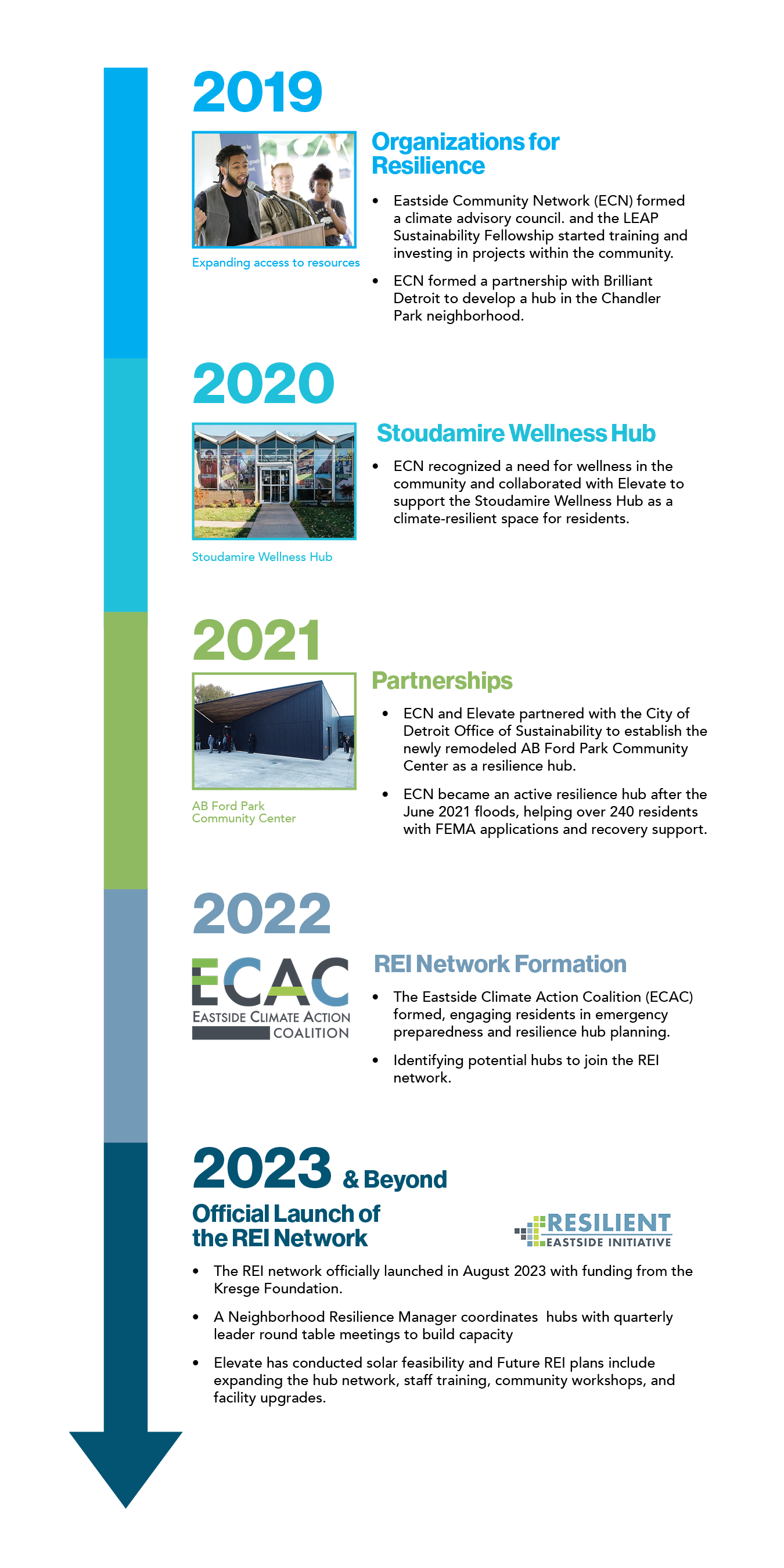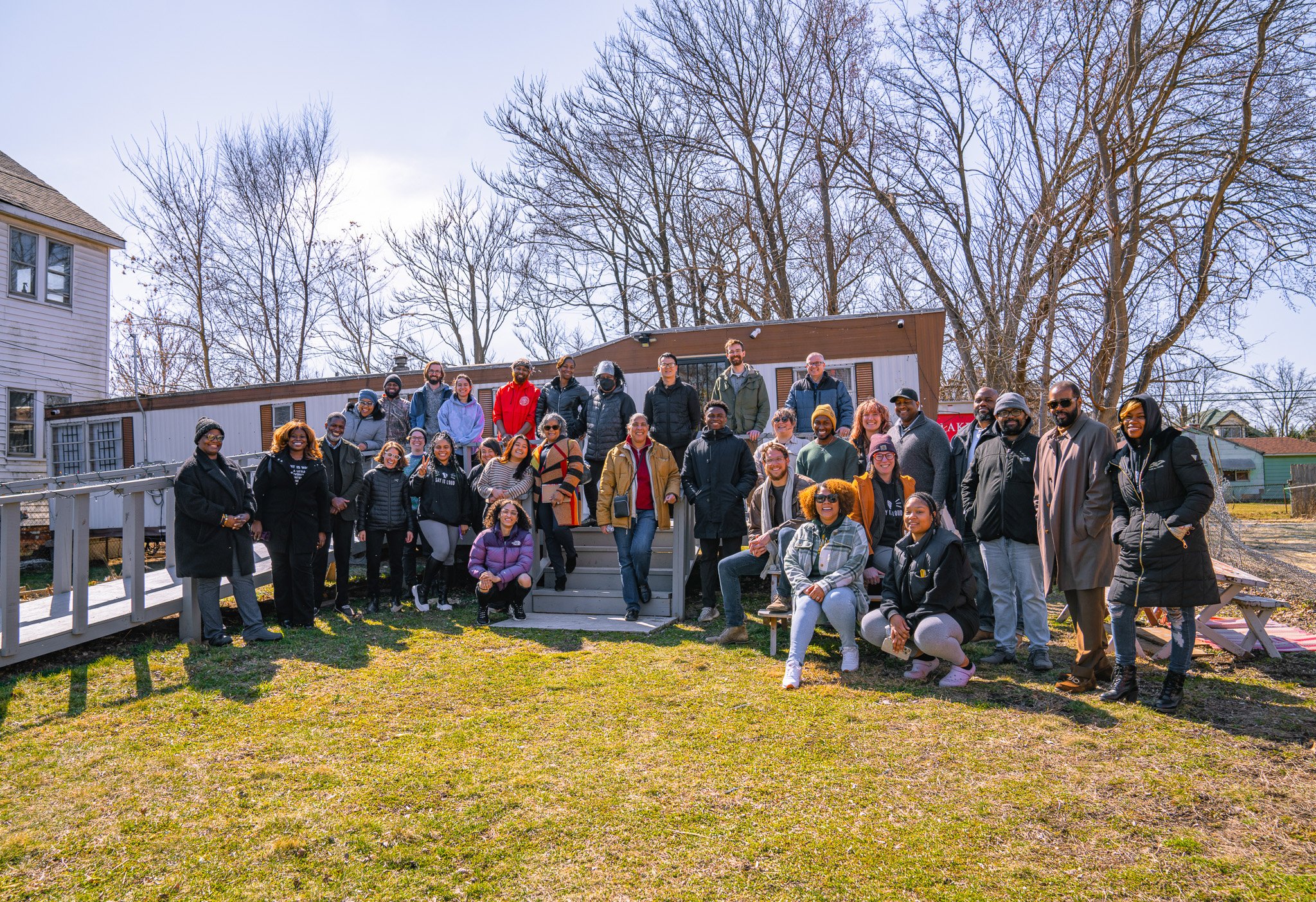
The Resilient Eastside Initiative (REI) is a network of community hubs across Detroit’s Eastside led by local residents and organizations that are collectively working on climate-related justice issues.
What is REI?
Resilience Eastside Initiative
The Resilient Eastside Initiative (REI) is Eastside Community Network’s long-term commitment to building stronger, healthier, and more climate-resilient neighborhoods on Detroit’s Eastside. REI brings residents, community partners, and local leaders together to confront environmental challenges, improve neighborhood stability, and expand access to the resources every family deserves.
Through community education, climate preparedness programming, resident-led planning, and on-the-ground projects like green infrastructure and neighborhood activation, REI empowers Eastside residents to shape solutions that reflect their lived experiences. Guided by equity and collaboration, the initiative strengthens community power and supports a future where all Eastside neighborhoods can thrive—today and for generations to come.
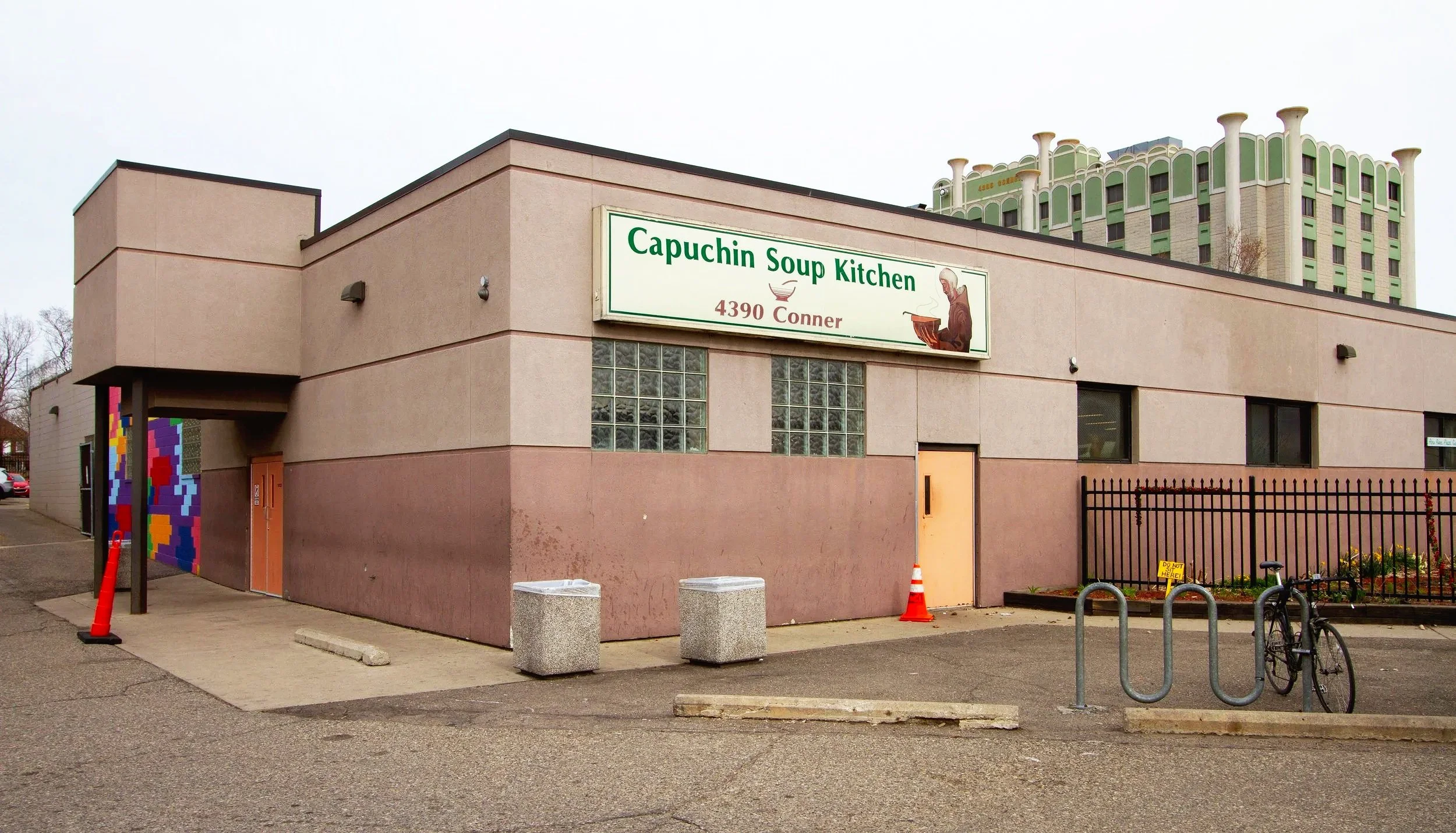
What is a Resilience Hub?
A resilience hub is a neighborhood space that coordinates resources and services before, during, and after a climate disaster.
The Lower Eastside Action Plan (LEAP) Coalition is an award-winning plan and community-driven initiative that engages residents in a process of transforming open space and stabilizing neighborhoods. ECN works with a host of LEAP Coalition committees to implement the plan and develop LEAP-aligned programs.
Resilience Hub Core Features:
INFRASTRUCTURE: Solar and backup power for medical supplies and devices, safe space for residents to access resources, power and information.
PEOPLE: Staff trained to respond to crises.
COMMUNITY: Local, trusted organizations within a 10-minute walk from home.
Hubs will offer:
Access to electricity, heating and cooling in emergencies.
Distribution of food, water, tools, resources, funding, and shelter during disruptions.
Logistical coordination with public agencies, emergency responders, and partner organizations.
Access to basic health and medical supplies.
Communication and connection with other community resources.
Detroit’s Climate Hazards
THREAT
Flooding
40 - 55% Detroit homes are impacted by flooding 2012 - 2021
Poor Air Quality Days
Air pollution is responsible for about 721 premature deaths per year in Detroit.
Detroit suffers from urban heat island effect. Heat-related illness can be fatal.
Extreme Summer Weather
Extreme Winter Weather
Freezing temperatures can cause outages, hypothermia, and frostbite.
Power Outages
Michigan ranks 2nd in the nation for power outages.
ACTIONS
Store valuables off the floor, elevate utilities, clear nearby storm drains, stay out of the water for health. Seek higher ground and evacuate as instructed.
Stay inside and close windows, identify a space with adequate air filters, keep kids inside, buy or make an air filter for your home.
Locate a cooling center, drink plenty of water, charge your technology, keep fans in the house, close your shades.
Locate a heating center near you, stay inside and off roads, dress in layers. Weatherize your home, be careful about heat source exhaust.
Locate a heating center near you, stay inside and off roads, dress in layers. Weatherize your home, be careful about heat source exhaust.
Current Resources
SERVICES IN THE AREA
Detroit 365 Alerts
Hubs in your Neighborhood
Our Partnered Resilience Hubs
Click one to learn about their services
Our History
Want more information?
To learn more about the Resilient Eastside Initiative, contact Meghan Richards at mrichards@ecn-detroit.org or (313) 331-3287.
